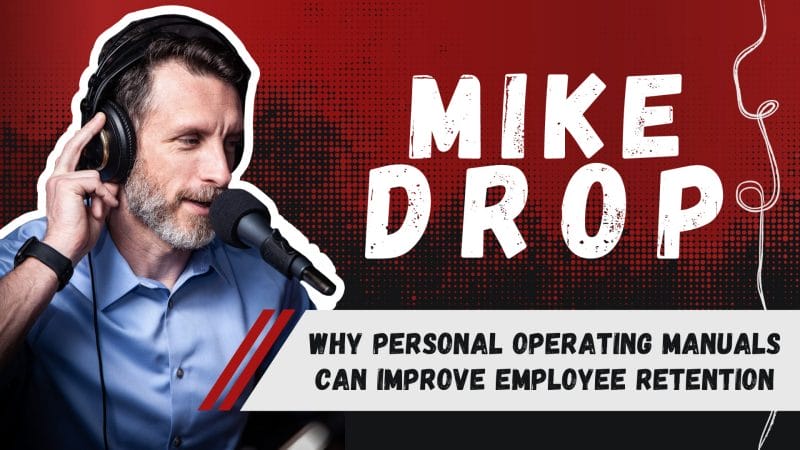When vetting job applicants, how many hoops are too many to jump through? According to data from Glassdoor, pre-hire “take-home” assignments have been on the rise and may be turning off eligible workers or delaying the process long enough for a competitor to scoop up the applicant first.
For MSP business owners, pre-hire assessments like cognitive aptitude tests, personality profiles, or skills tests can offer a good sense of a candidate’s potential. However, it’s important to take a balanced approach: Ensure that any assignment or step in your hiring process is relevant, considerate of the candidate’s time, and reflects the role you’re hiring for.
Here are some pre-hire tips for the three most common roles MSPs recruit for—technicians, sales and marketing, and customer success/account managers.
Determine If A Take-Home Assignment Is Necessary
Although pre-hire assessments are on the rise across industries and roles, they don’t always get a warm reception from applicants, Bloomberg reports. Some take-home tests, like coding projects, have taken hours to complete. Even worse, applicants may wait months to hear back.
Tracy Westcott, founder and principal consultant at Talent Track Solutions, sympathizes with employers. “Hiring the wrong person is brutal,” she says. (A hiring “miss” costs on average $17,000, according to CareerBuilder). But if you’re using pre-hire assignments, it’s critical to be crystal clear on why you’re using them.

“Ask yourself, what’s the reason this needs to be completed based on the role? There needs to be a true understanding and transparency around the purpose,” Westcott says.
Use “Knock-Out” Questions First
No matter the position, Westcott suggests having applicants respond to required “knock-out questions” as a first step. For example, if it’s an in-office position, and they don’t want to work in an office, that’s a knock-out question. “That’s very helpful on the front end across any position,” she says.
Charles Henson, owner of Nashville Computer, sends eight questions to prospective hires before interviewing them. “The questions make sure they’re not just kicking the tires. They’re not going to invest time sending those answers back if they’re not invested in changing jobs or interested in that position,” he says.
After KO questions, the hiring process will look different for different roles, including if and how you use pre-hire assignments:
Technicians: Try A Collaborative Approach
Technical applicants should expect a longer process, Westcott says. Knowing that an applicant has the skills you’re looking for is critical, but an extensive take-home assignment may not be necessary. Because nearly half of candidates dislike take-home assignments, according to a 2023 survey by Greenhouse, it might even hurt your chances of landing a top candidate.

There is an alternative, says Westcott. “One thing that I recommend to clients is a collaborative technical assessment. It’s an hour- to two-hour conversation, troubleshooting, or going through a technical exercise,” she explains. A collaborative approach can assess their skills and gauge what it feels like to work with that person. Westcott adds, “You’re not asking them to take time away from their personal life or work to prepare.”
Henson takes that type of approach. He gives technical applicants a 20-question test during an in-person interview. Afterward, they meet with Henson’s team members to review it.
“There’s more to it than if they can answer the technical questions. How do they handle sitting down with seven to eight people in an interview? Because sometimes you go on-site to see a client and two or three people are there asking you questions,” Henson points out.
Sales And Marketing Roles: Consider Personality Tests Thoughtfully (Or Don’t Use Them)
Although behavioral assessments like predictive indexes offer beneficial insights, particularly for sales and account manager roles, Westcott warns against using personality tests as a deciding factor in your hiring process.
“I think it’s an opportunity to understand what it’s going to be like working with that person,” she explains. “I don’t like to use those as, ‘If they come back as this, then they’re not going to get hired.’” Westcott adds that it’s best to drop them altogether from your hiring process without someone trained to interpret the results.
For sales roles, Henson pays attention to communication. After an initial interview, “I’ll tell them, ‘Hey, let’s follow up in a couple of days, and I’ll schedule you with the team,’” he says. “If they don’t follow up, I don’t want them on my sales team because I need somebody who is going to follow up with a client.”
Customer Success And Account Managers: Try Presentations
Ann Westerheim, founder and president of Ekaru, doesn’t use pre-hire assessments or tests. She feels personality tests can be gamed and don’t offer great insights. For her, it’s all in the interview questions.

“We want to get people talking about their experience and how they’ve solved problems. Can they give examples? What resources do they use? How do they learn? If they come up with a blank, it’s a sign they’re not learning outside of work,” she says. “Getting people to talk in detail about work they’ve actually done reveals a lot.” But she warns if you’re not asking good questions, “you could wind up with a miss hire.”
Though she hasn’t tried it yet, Westerheim has heard good things about using presentations in her hiring process. A 15-minute presentation by the applicant on a topic they choose, especially for sales and account manager roles, could provide valuable insights into what it would be like for clients to work with that person.
“It would be interesting to see how they approach it,” she says. “What do they choose to talk about? How much enthusiasm do they bring to the table?”
A Good Hiring Process Is A Strategic One
The success of pre-hire assignments in your MSP hiring process hinges not just on the type of assessment you use but on how you execute the process. “Focus on being intentional and have transparency in the process,” says Westcott. “The key is setting realistic expectations with the candidate. Do they know what the next steps are? Do they know the timeframes? Do they know what they need to prepare for that technical assessment? That’s very important.”
After all, the goal is to attract the best talent and cultivate a good match for you and your employee—not to create unnecessary barriers that send your top applicants into the arms of another company.
For more tips on hiring, see Why Shifting To Skills-Based Hiring Makes Sense In A Tight Labor Market and The MOST Important Quality To Look For Right Now When Hiring.









